
Lomé: The Vibrant Heartbeat of Togo
Lomé, the capital of Togo, is a city that beautifully blends rich history, vibrant culture, and modernity. Nestled along the Gulf of Guinea, this coastal city offers pristine beaches, bustling markets, and a welcoming atmosphere that draws tourists from all over the world. As you wander through Lomé, you'll encounter a melting pot of cultures, with influences from both West Africa and colonial Europe, making it a unique destination for any traveler. One of Lomé's top attractions is the Grand Marché, a lively market where you can find everything from colorful fabrics and handmade crafts to fresh produce and spices. It's a sensory overload in the best possible way, and a perfect place to soak up the local vibe. Don't miss the chance to visit the National Museum, which provides a deep dive into Togo's history and traditions, or the Independence Monument, a symbol of the country's journey to self-governance. For those who love the outdoors, Lomé's beaches are a must-visit. The city's coastline stretches for miles, offering spots for sunbathing, swimming, and even surfing. Palm-lined sands and warm waters make it an ideal place to relax and unwind. Additionally, Lomé is a gateway to exploring other parts of Togo, such as the lush forests and waterfalls in the Kpalimé region or the traditional villages in the northern part of the country.
Local tips in Lomé
- Visit the Grand Marché early in the morning to avoid the crowds and get the best selection of goods.
- Carry cash, as many local vendors and smaller establishments do not accept credit cards.
- Stay hydrated and use sunscreen, especially when exploring the outdoor markets and beaches.
- Learn a few phrases in French, as it is the official language and widely spoken in Lomé.
- Try local dishes like fufu and grilled fish at traditional Togolese restaurants for an authentic culinary experience.
Neighbourhoods in Lomé
Lomé: The Vibrant Heartbeat of Togo
Lomé, the capital of Togo, is a city that beautifully blends rich history, vibrant culture, and modernity. Nestled along the Gulf of Guinea, this coastal city offers pristine beaches, bustling markets, and a welcoming atmosphere that draws tourists from all over the world. As you wander through Lomé, you'll encounter a melting pot of cultures, with influences from both West Africa and colonial Europe, making it a unique destination for any traveler. One of Lomé's top attractions is the Grand Marché, a lively market where you can find everything from colorful fabrics and handmade crafts to fresh produce and spices. It's a sensory overload in the best possible way, and a perfect place to soak up the local vibe. Don't miss the chance to visit the National Museum, which provides a deep dive into Togo's history and traditions, or the Independence Monument, a symbol of the country's journey to self-governance. For those who love the outdoors, Lomé's beaches are a must-visit. The city's coastline stretches for miles, offering spots for sunbathing, swimming, and even surfing. Palm-lined sands and warm waters make it an ideal place to relax and unwind. Additionally, Lomé is a gateway to exploring other parts of Togo, such as the lush forests and waterfalls in the Kpalimé region or the traditional villages in the northern part of the country.
When is the best time to go to Lomé?
Iconic landmarks you can’t miss
Hedzranawoe Market
Explore the vibrant Hedzranawoe Market in Lomé for an authentic taste of Togolese culture, crafts, and culinary delights.
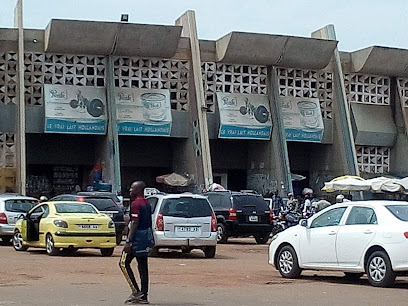
ONOMO Hotel Lomé
Experience modern comfort at ONOMO Hotel Lomé, your perfect base for discovering the vibrant culture and beauty of Togo's capital.
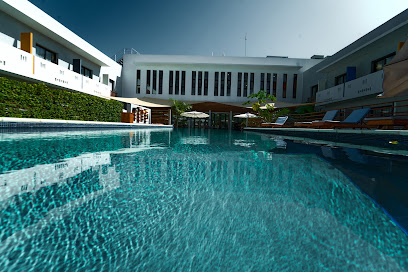
Mercure Lome Sarakawa
Discover the vibrant culture of Lomé while enjoying modern comfort at Mercure Lome Sarakawa, the perfect hotel for your Togolese getaway.

Gnassingbé Eyadéma International Airport
Experience the warm welcome of Togo at Gnassingbé Eyadéma International Airport, your gateway to the vibrant culture and breathtaking landscapes of West Africa.
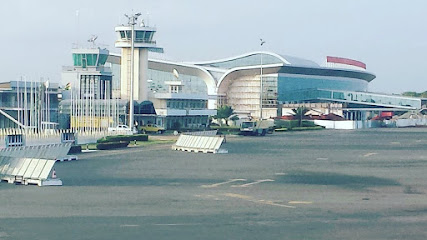
Crossroads of the Two Lions
Discover the iconic Crossroads of the Two Lions, a historical landmark in Lomé that symbolizes strength and cultural heritage amidst vibrant local life.
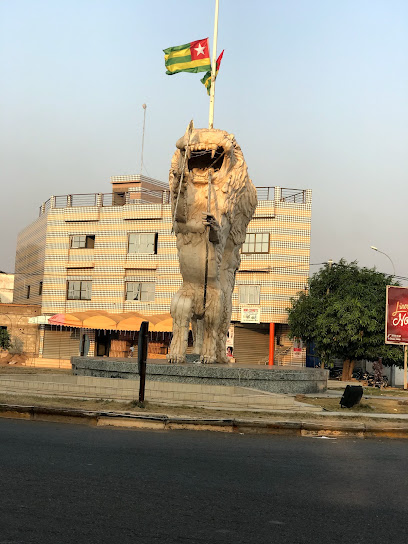
Kégué Stadium
Discover Kégué Stadium, the heart of sports and entertainment in Lomé, where local culture meets thrilling events and unforgettable experiences.
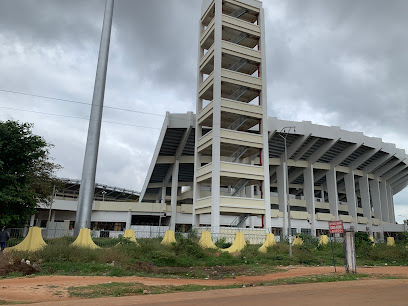
Colombe De La Paix
Discover the Colombe De La Paix, a stunning monument in Lomé symbolizing peace and unity amidst the vibrant culture of Togo.
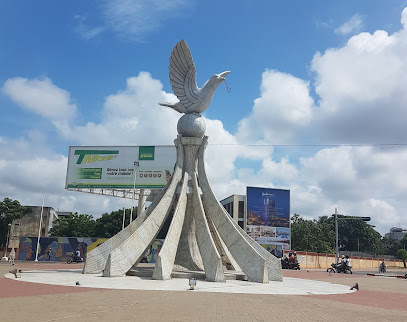
Le Patio
Experience luxury and relaxation at Le Patio, a premier hotel and spa in Lomé, offering exquisite amenities for the perfect getaway.
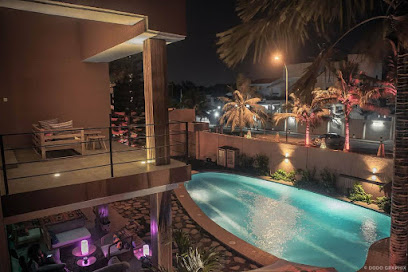
Lomé Grand Market
Experience the vibrant culture of Lomé at the Grand Market, where local flavors, unique crafts, and bustling energy await every visitor.
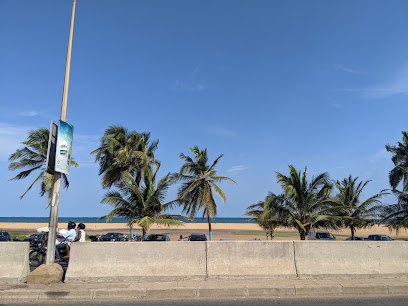
Factory Grill & Pizza
Experience the vibrant dining scene of Lomé with mouthwatering pizzas and grilled delicacies at Factory Grill & Pizza.
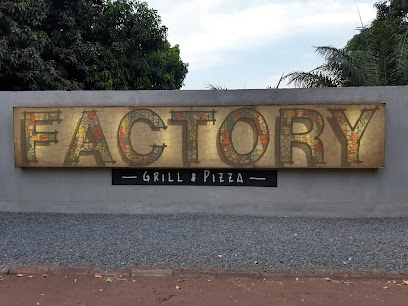
Monument de l'independance
Explore the Monument de l'Indépendance in Lomé, a cultural landmark celebrating Togo's rich history and resilience in the face of challenges.
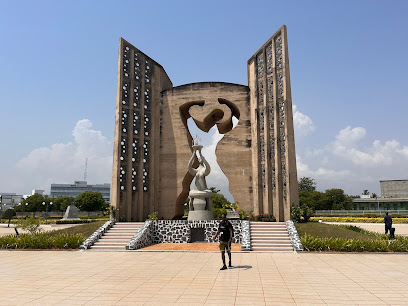
Hôtel Sancta Maria
Experience the charm and elegance of Hôtel Sancta Maria in Lomé, Togo, where comfort meets local culture in a stunning setting.
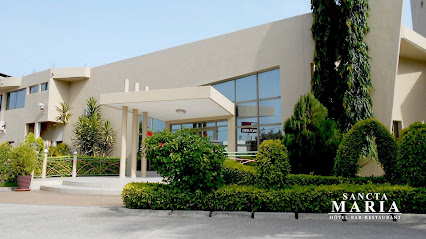
Akodessewa Fetish Market
Explore the vibrant Akodessewa Fetish Market in Lomé, Togo - a treasure trove of traditional artifacts and spiritual culture.
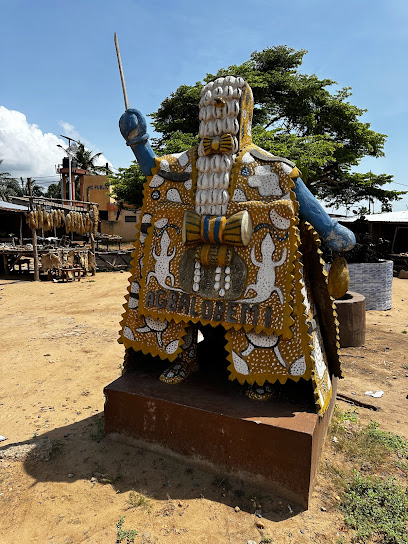
Seven Days Restaurant
Discover the vibrant flavors of Lomé at Seven Days Restaurant, where local cuisine meets a welcoming atmosphere for an unforgettable dining experience.
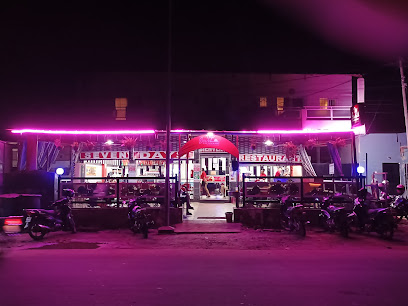
Pure Plage
Discover Pure Plage in Lomé: A serene beach pavilion offering exquisite dining and a taste of Togolese culture.

Unmissable attractions to see
Akodessewa Fetish Market
Discover the Akodessewa Fetish Market in Lomé, a captivating blend of culture, spirituality, and vibrant local traditions.
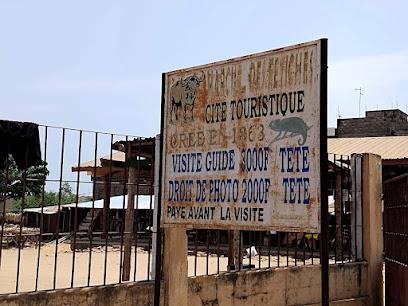
Place des Fêtes Nathanaël
Experience the thrill and joy at Place des Fêtes Nathanaël, the premier amusement park in Lomé, Togo, perfect for families and fun-seekers alike.
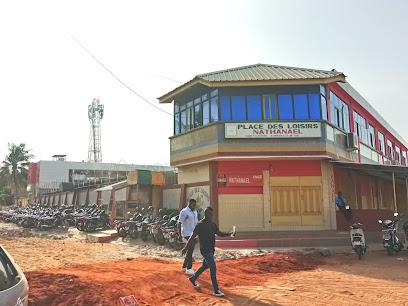
Maison des Esclaves
Explore the poignant history of the transatlantic slave trade at Maison des Esclaves, a must-visit museum in Agbodrafo, Togo.
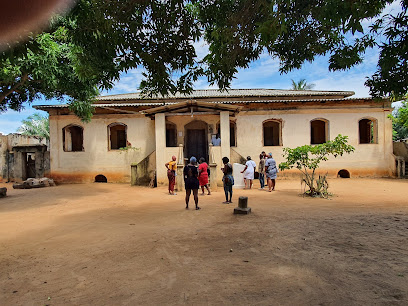
Eden Parc
Discover Eden Parc, Lomé's premier children's amusement center, where family fun and adventure await in a vibrant setting.
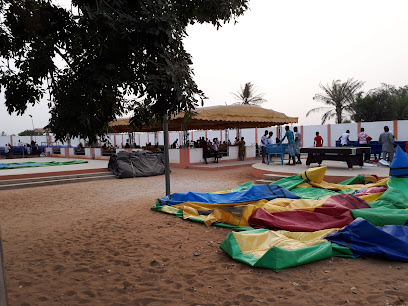
International Museum Of The Gulf Of Guinea
Explore the International Museum of the Gulf of Guinea, where West African heritage and contemporary art converge in Lomé, Togo.
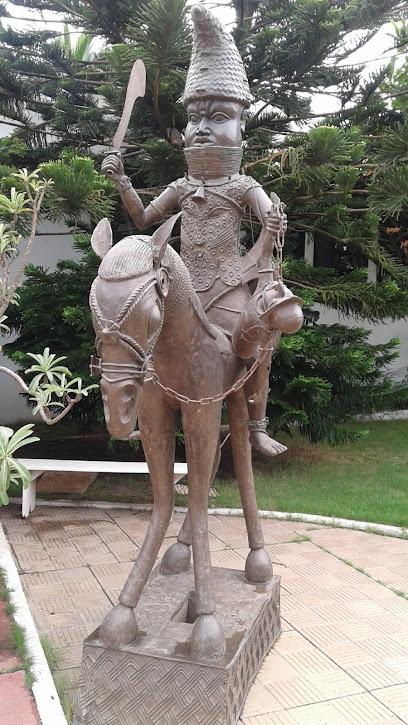
Parc d’attraction du CERFER
Experience the excitement of Parc d’attraction du CERFER in Lomé, where thrilling rides and family fun come together for an unforgettable adventure.
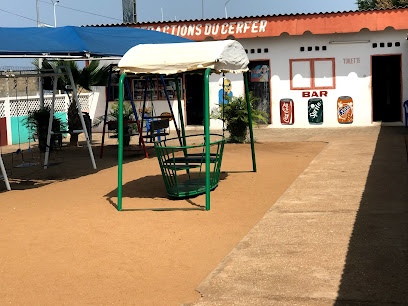
Mosaics Tourism Agence
Explore the heart of Togo's culture at Mosaics Tourism Agence in Lomé, where art and heritage come alive through immersive experiences.
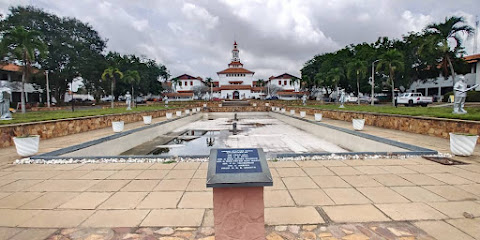
Essential places to dine
Le Phenicien
Discover Le Phenicien in Lomé - where fast food meets exquisite pastries and delicious pizzas in an inviting atmosphere.
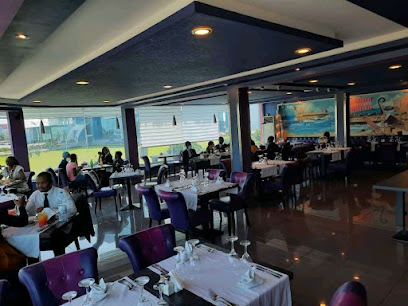
Blue Turtle Bay
Experience the flavors of Togo at Blue Turtle Bay – where local cuisine meets vibrant dining in Lomé.
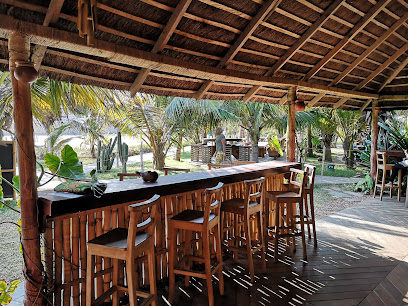
Le Beluga
Discover the vibrant flavors at Le Beluga in Lomé - where local meets international in an unforgettable dining experience.
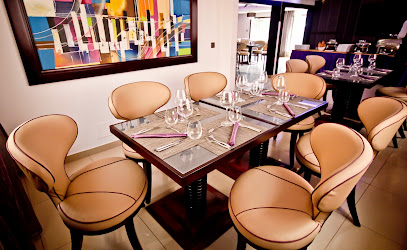
Seven Days Restaurant
Experience authentic Togolese cuisine with a twist at Seven Days Restaurant in Lomé – where every meal is a celebration of flavor.
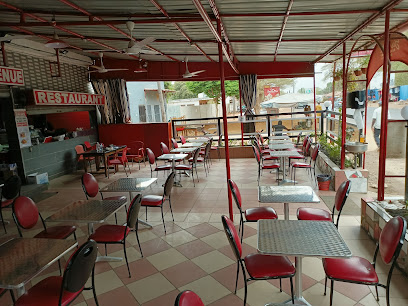
Alt Munchen
Experience the taste of Germany in Lomé at Alt Munchen - where authentic flavors meet warm hospitality.
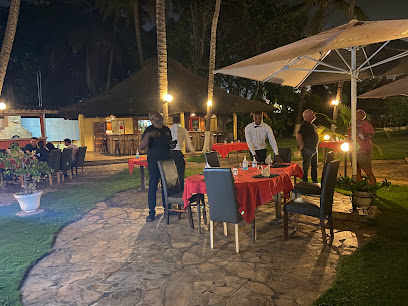
Maquis Chez Brovi
Experience authentic Togolese cuisine at Maquis Chez Brovi in Lomé, where flavor meets tradition in a vibrant setting.
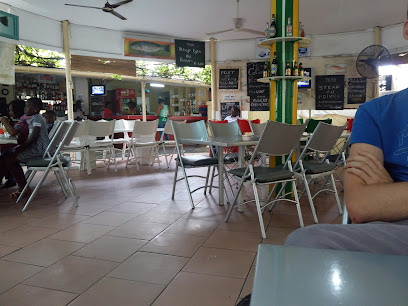
Green Field
Experience the best of Togolese cuisine blended with international flavors at Green Field in Lomé.
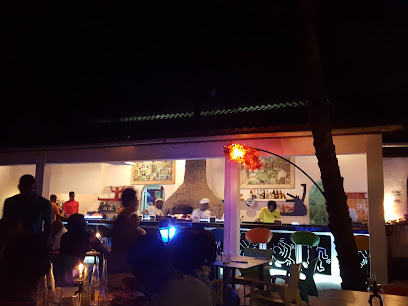
7SPICE
Discover authentic Indian cuisine at 7SPICE in Lomé—where every dish tells a story of tradition and flavor.
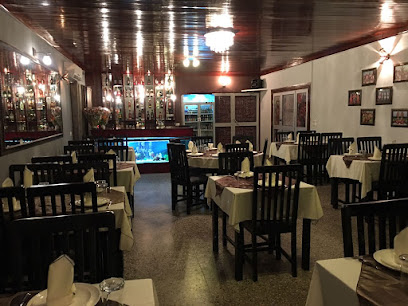
Hype Lomé
Discover Hype Lomé: Your ultimate destination for mouthwatering pizzas in the heart of Togo's capital city.
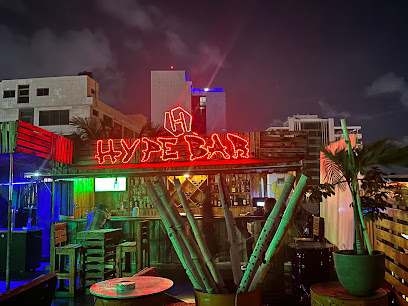
TBB - The Best Burger Lomé
Savor gourmet burgers in Lomé at TBB - The Best Burger, where local flavors meet international flair.
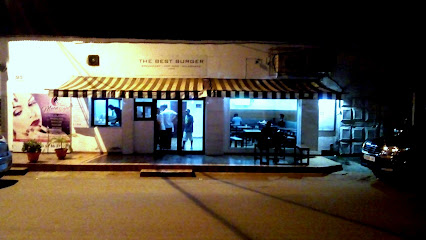
La route des vins
Discover La Route des Vins in Lomé - where exquisite wines meet delectable cuisine in an inviting atmosphere.
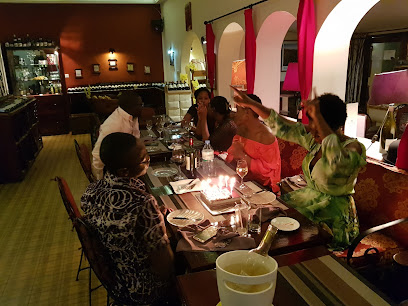
Les Nuits d’Orient
Experience authentic Middle Eastern cuisine at Les Nuits d’Orient in Lomé – where flavor meets culture in every dish.
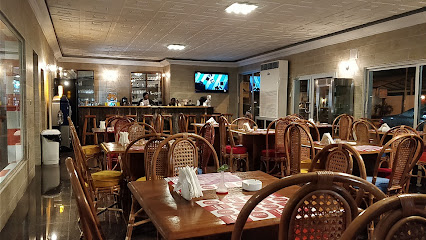
La Table Du DG
Experience authentic Togolese cuisine in a warm and welcoming setting at La Table Du DG in Lomé.
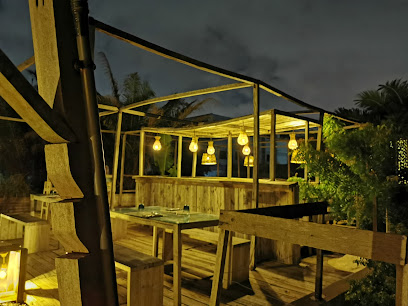
Ci Gusta Italian restaurant
Discover authentic Italian cuisine at Ci Gusta in Lomé - where every dish tells a story of Italy's rich culinary heritage.
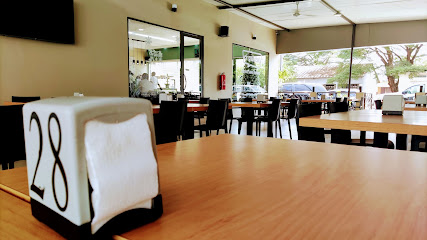
Restaurant Côté Jardin
Experience the vibrant flavors of Togo at Restaurant Côté Jardin - where local ingredients meet culinary creativity in Lomé.
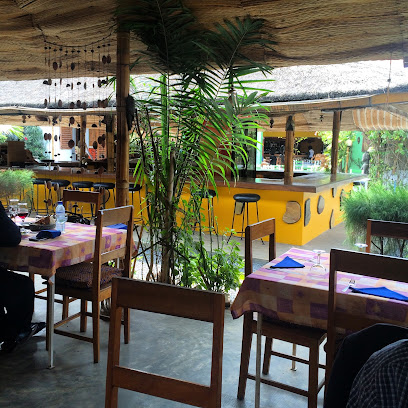
Markets, malls and hidden boutiques
DOLLAR doris LOMÉ
Explore Lomé's bustling shopping scene at Dollar Doris, your go-to supermarket for groceries and cosmetics with a local flair.
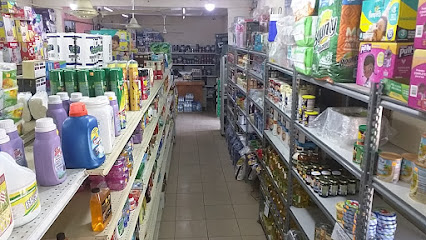
Village artisanal de Lomé
Immerse yourself in the vibrant culture of Togo at the Village Artisanal de Lomé, where local artisans showcase their unique crafts and traditions.
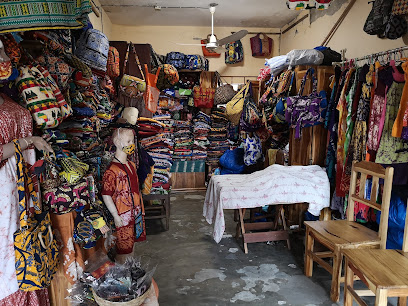
Nadiaka Boutique
Explore Nadiaka Boutique in Lomé for authentic Togolese crafts, unique clothing, and a vibrant shopping experience that showcases the culture of Togo.
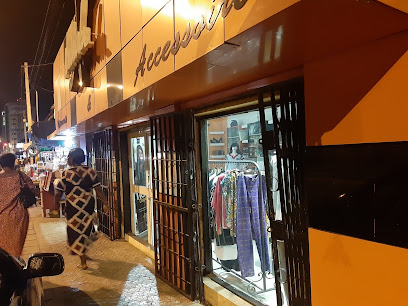
ZARA MALL
Discover the latest fashion trends and local styles at Zara Mall, a premier shopping destination in Lomé, Togo.
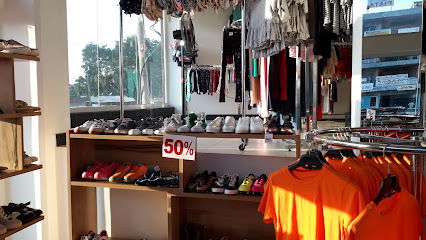
Empreinte By ZARA Shop
Discover the latest fashion trends at Empreinte By ZARA in Lomé, where style meets quality for every occasion.

Aklala Batik Du Togo à Lomé
Explore Aklala Batik Du Togo in Lomé for unique batik gifts that showcase the rich culture and artistry of Togo.
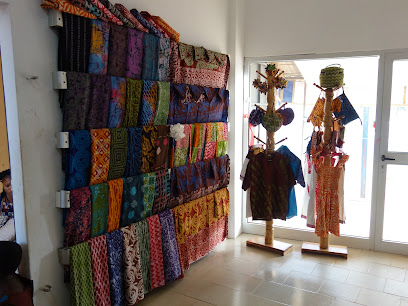
Ever Bright Fashion World
Explore vibrant women's fashion at Ever Bright Fashion World, where Togolese culture meets contemporary style in the heart of Lomé.
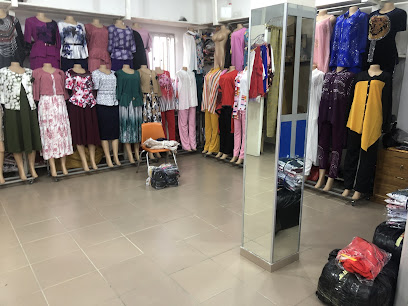
The Korner Shop lomé
Explore The Korner Shop in Lomé for unique gifts and authentic Togolese handicrafts that celebrate the vibrant culture of Togo.
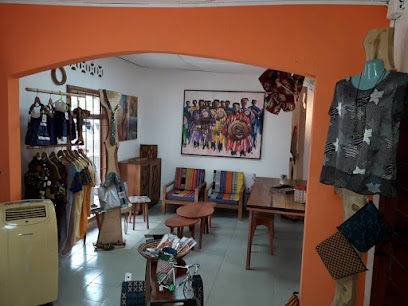
togoshop
Discover Togoshop: A vibrant marketplace in Lomé offering exquisite handbags and a variety of local fashions, capturing the essence of Togolese culture.
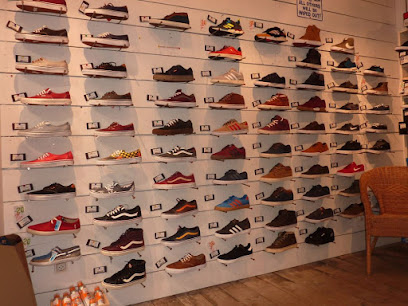
Vlisco
Explore the vibrant world of African textiles at Vlisco, a stunning showcase of craftsmanship and cultural heritage in Lomé, Togo.
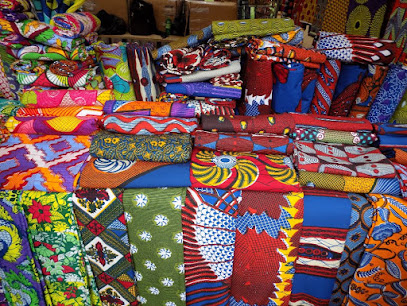
The Store Togo
Discover the vibrant styles of Togolese fashion at The Store Togo, where tradition meets contemporary design in a delightful shopping experience.
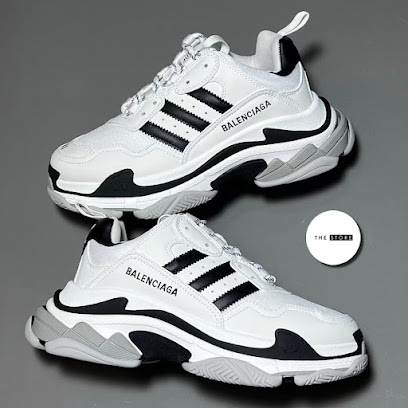
Boutique TOGO SOUVENIRS
Explore the vibrant charm of Togo at Boutique TOGO SOUVENIRS, your one-stop destination for authentic local gifts and keepsakes.
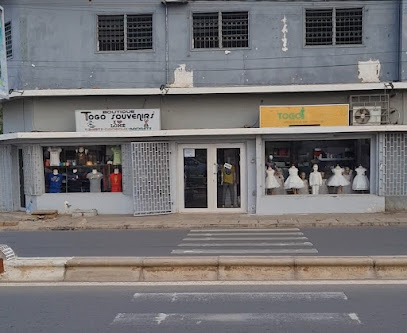
Boutique Mablé Agbodan
Explore Boutique Mablé Agbodan in Lomé for unique clothing that captures the vibrant culture and craftsmanship of Togo.
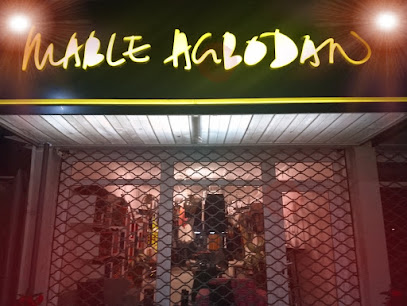
Nicelia
Explore the vibrant shopping scene at Nicelia in Lomé, where unique finds and local culture await every visitor.
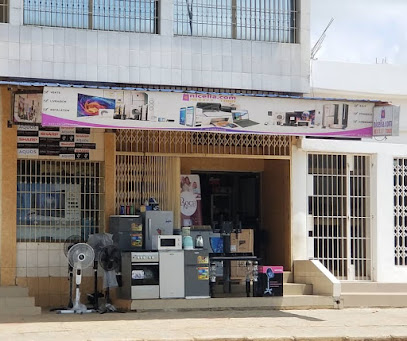
Centre artisanal
Explore the vibrant Centre Artisanal in Lomé, where local artisans showcase unique handmade crafts and a rich cultural experience awaits every visitor.

Essential bars & hidden hideouts
Bar 3K
Experience the vibrant nightlife at Bar 3K in Lomé, where local flavors and a lively atmosphere await every visitor.
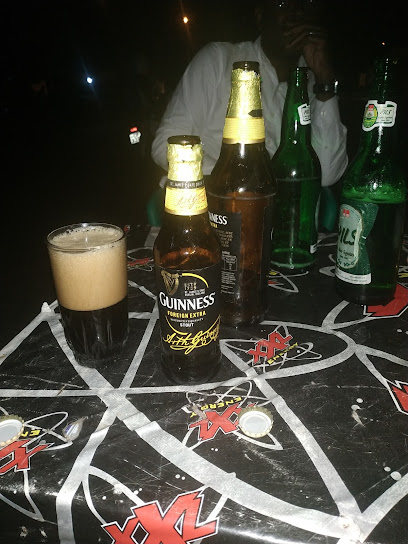
LA VILLA
Experience the vibrant nightlife of Lomé at La Villa, where delightful drinks and a lively atmosphere await you in this popular local bar.
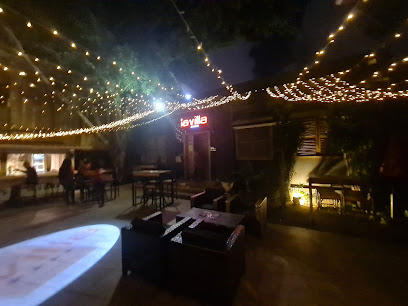
La Chunga bar restaurant
Experience the vibrant culture of Lomé at La Chunga, the go-to bar for lively ambiance and delicious local drinks.
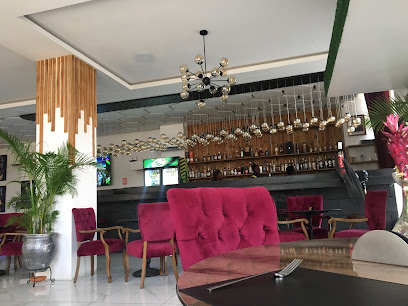
Bar Resto Peace Beach
Discover the vibrant atmosphere and tropical flavors of Bar Resto Peace Beach, a perfect spot for relaxation and enjoyment in Lomé.
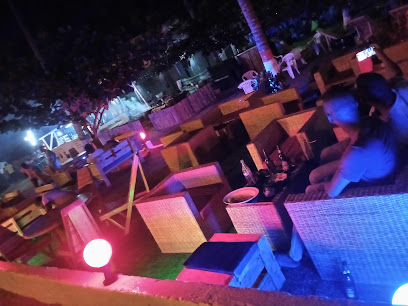
Le ROOFTOP
Enjoy stunning city views and vibrant nightlife at Le ROOFTOP, Lomé's premier bar for cocktails and socializing.
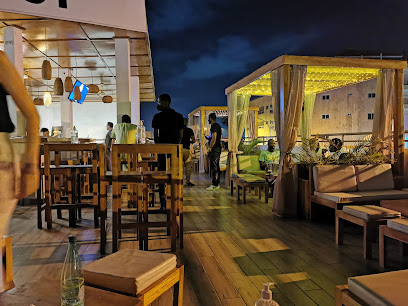
Seven clash
Discover the vibrant nightlife of Lomé at Seven Clash, a lively bar offering a wide range of drinks and entertainment in a welcoming atmosphere.
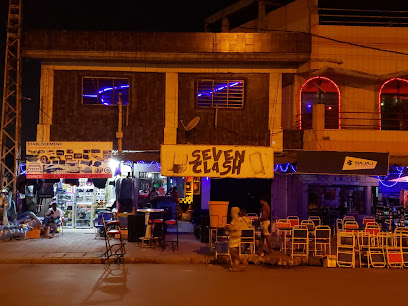
Bar Agbékoko
Experience the vibrant nightlife of Lomé at Bar Agbékoko, where refreshing drinks and local culture come together in an inviting atmosphere.
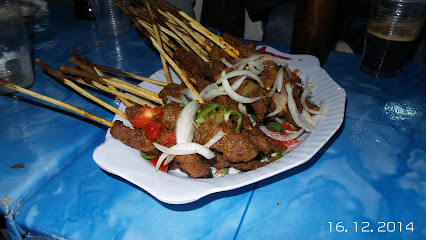
i'Top Rooftop Lounge
i'Top Rooftop Lounge in Lomé: Where exquisite wines, crafted cocktails, and breathtaking views create the perfect evening atmosphere.
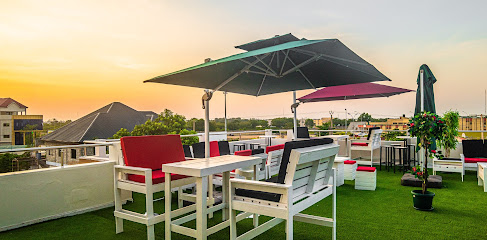
Le MYTHE LOUNGE
Experience the vibrant nightlife at Le MYTHE LOUNGE in Lomé, where exceptional drinks and electrifying music create unforgettable nights.
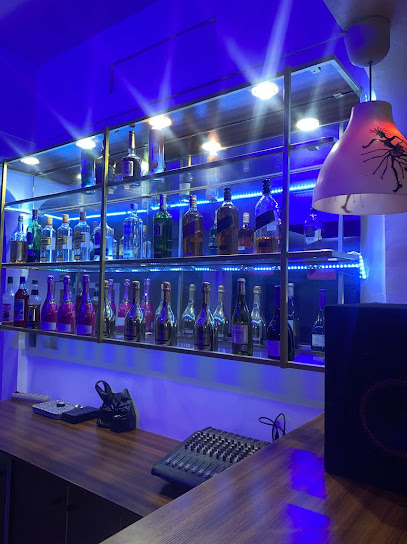
Bar La Fierté
Discover the vibrant atmosphere and delectable cuisine at Bar La Fierté, a must-visit bar and restaurant in Lomé, Togo.
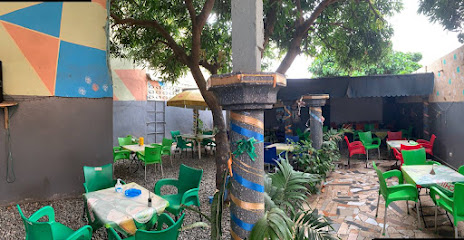
New York Lounge Bar Restaurant
Discover the vibrant nightlife and culinary delights at New York Lounge Bar Restaurant in Lomé, a must-visit spot for all travelers.
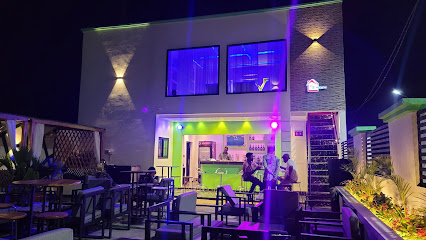
HYPE BAR
Discover the lively atmosphere of HYPE BAR in Lomé, where local culture meets vibrant nightlife and enjoyable drinks.
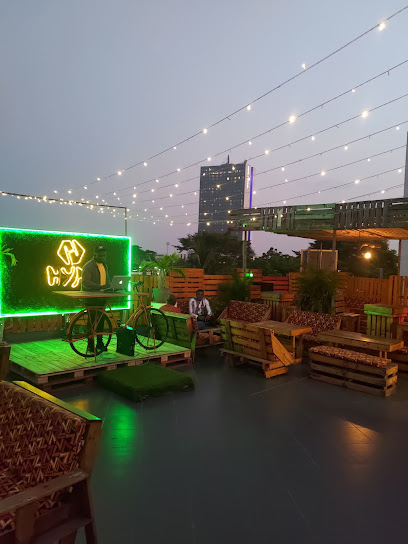
Bar Le Togo
Discover the vibrant nightlife of Lomé at Bar Le Togo, where local flavors and lively music create an unforgettable experience.
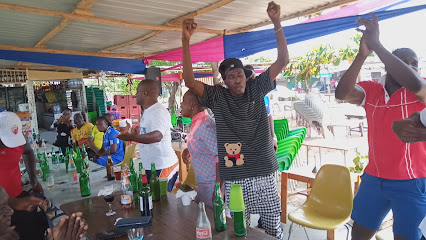
360 Degrees Bar Resto
Discover the vibrant nightlife and cocktail culture of Lomé at 360 Degrees Bar Resto, where local flavors meet a contemporary atmosphere.
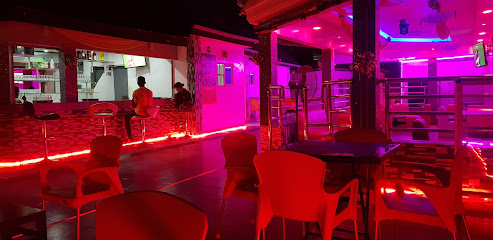
Local Phrases
-
- HelloAkpe
[ah-kpeh] - GoodbyeAdeiu
[ah-deh-yu] - YesWo
[woh] - NoAïe
[ah-ye] - Please/You're welcomeM'ɛnɛya
[meh-neh-yah] - Thank youAkpe
[ah-kpeh] - Excuse me/SorryƉɛkpa
[dek-pah] - How are you?Agbede?
[ah-beh-deh] - Fine. And you?Mi ɖɔa. Ɔ?
[mee doh-ah. oh] - Do you speak English?Ŋutɔ wɔ ŋlisi?
[ngu-toh woh-ngleesee] - I don't understandMi ɖɔa xɔnɔ
[mee doh-ah honoh]
- HelloAkpe
-
- I'd like to see the menu, pleaseMi kplɔ kɔkɔlo, ɖɔa
[mee k-plo koh-koh-loh, doh-ah] - I don't eat meatMi xɔnɔ haɖi
[mee honoh ha-dee] - Cheers!Aɣɔ
[ah-ghoh] - I would like to pay, pleaseMi kplɔ xɔ kɔ dɔ
[mee k-plo hon koh doh]
- I'd like to see the menu, pleaseMi kplɔ kɔkɔlo, ɖɔa
-
- Help!Mɔ
[moh] - Go away!Kɔ kɔ
[koh koh] - Call the Police!Kɔ mɔsɔ
[koh moh-soh] - Call a doctor!Kɔ nɔ
[koh noh] - I'm lostMi xɔ nɔvi
[mee hon noh-vee] - I'm illMi xɔ hɔ
[mee hon hoh]
- Help!Mɔ
-
- I'd like to buy...Mi kplɔ xɔ...
[mee k-plo hon...] - I'm just lookingMi kplɔ xɔvi
[mee k-plo hoh-vee] - How much is it?E nyɔ xɔ yi?
[eh nyoh hon yee] - That's too expensiveWɛ xɔɖɔ hɔ
[weh hon-hoh hoh] - Can you lower the price?Wɛ xɔe ɖa haɖi?
[weh hon-eh dah ha-dee]
- I'd like to buy...Mi kplɔ xɔ...
-
- What time is it?Amɛ xɔ yiɖɔ?
[ah-meh hon yee-doh] - It's one o'clockYiɖɔ yi
[yee-doh yee] - Half past (10)Xɔvi yɔ (10)
[hoh-vee yoh (10)] - MorningAkpɔli
[ah-kpo-lee] - AfternoonAdɔ
[ah-doh] - EveningAɖanu
[ah-dah-noo] - YesterdayŊɔ
[ngoh] - TodayŊɔnu
[ngoh-noo] - TomorrowŊɔnuwo
[ngoh-noo-woh] - 1Yi
[yee] - 2Eɖe
[eh-deh] - 3Mi
[mee] - 4Ne
[neh] - 5Na
[nah] - 6Vio
[vee-oh] - 7Sia
[see-ah] - 8Ku
[koo] - 9Fi
[fee] - 10Wu
[woo]
- What time is it?Amɛ xɔ yiɖɔ?
-
- Where's a/the...?Ɖe... nɔ?
[deh... noh] - What's the address?Amɛ ... yi?
[ah-meh ... yee] - Can you show me (on the map)?Wɛ mi xɔvi ...?
[weh mee hoh-vee ...?] - When's the next (bus)?Amɛ ... ŋutɔ?
[ah-meh ... ngu-toh] - A ticket (to ....)Ɖa ...
[dah ...]
- Where's a/the...?Ɖe... nɔ?
History of Lomé
-
Lomé, the capital city of Togo, was originally a small Ewe fishing village. Its advantageous coastal location made it a point of interest for trade and settlement. The Ewe people, known for their rich cultural heritage and traditional practices, laid the foundations for what would eventually become a bustling urban center.
-
In the late 19th century, Lomé became a focal point during the Scramble for Africa. In 1884, the German Empire established the Togoland protectorate, with Lomé eventually becoming the administrative capital. Under German rule, the city saw significant infrastructural development, including the construction of railways and port facilities.
-
After World War I, the League of Nations mandated Togoland to France. Lomé continued to develop under French colonial rule, becoming a central hub for administrative and economic activities. Togo gained independence from France in 1960, and Lomé was declared the capital of the newly sovereign nation.
-
Following independence, Lomé experienced rapid urbanization and expansion. The government invested in modern infrastructure, including the construction of government buildings, educational institutions, and healthcare facilities. The Port of Lomé became a crucial economic asset, serving as a major gateway for maritime trade in West Africa.
-
The post-independence period in Lomé was marked by political turbulence, including coups and periods of authoritarian rule. However, the city has gradually moved towards greater political stability. Democratic reforms and economic policies have been implemented to foster growth and development.
-
Lomé today is a vibrant city that reflects a blend of traditional and modern influences. The city is known for its bustling markets, such as the Grand Marché, and cultural landmarks like the Independence Monument and the National Museum. Lomé's rich cultural tapestry is also evident in its music, dance, and festivals, which continue to draw visitors from around the world.
Lomé Essentials
-
Lomé, the capital city of Togo, is accessible via Gnassingbé Eyadéma International Airport (LFW), which is well-connected to major cities in Africa and Europe. Direct flights are available from cities such as Paris, Brussels, and Addis Ababa. Overland travel from neighboring countries like Ghana, Benin, and Burkina Faso is also possible through various border crossings. Bus services operate between Lomé and nearby cities, offering an affordable means of travel.
-
Lomé offers a variety of transportation options. Taxis are widely available and are the most convenient way to get around the city. It's advisable to negotiate the fare before starting your journey. Motorcycle taxis, known locally as 'zemidjans,' are also popular and cheaper but less safe. Public minibuses, or 'bush taxis,' are an economical option for getting around, though they can be crowded and less reliable. Car rentals are available for those who prefer to drive themselves; however, be cautious as road conditions can vary.
-
The official currency in Togo is the West African CFA franc (XOF). Major credit cards are accepted in larger hotels, restaurants, and some shops, but it's advisable to carry cash, especially when visiting local markets or smaller establishments. ATMs are available in Lomé, though they may not always be reliable, so withdrawing sufficient cash in advance is recommended. Currency exchange services are available at the airport and in the city.
-
Lomé is generally safe for tourists, but it is important to take standard precautions. Petty crime such as pickpocketing and bag snatching can occur, especially in crowded areas and markets. Avoid walking alone at night, particularly in less populated areas. Some neighborhoods, such as Bé and Akodessewa, have higher crime rates and should be avoided after dark. Always be cautious and aware of your surroundings.
-
In case of emergency, dial 117 for police assistance and 118 for fire services. Medical emergencies can be addressed by calling 171. Lomé has several hospitals and clinics, with the Centre Hospitalier Universitaire de Lomé being one of the main medical facilities. It is advisable to have travel insurance that covers medical emergencies. Pharmacies are available throughout the city for minor health issues and over-the-counter medications.
-
Fashion: Do dress modestly, especially when visiting religious sites. Avoid overly revealing clothing. Religion: Do respect local customs and traditions. Always ask for permission before taking photographs in or around places of worship. Public Transport: Do be courteous and offer your seat to elderly passengers. Don’t display valuable items openly while on public transport. Greetings: Do greet people with a handshake. Showing respect and politeness is highly valued. Eating & Drinking: Do try local dishes and accept food and drink offerings graciously. Don’t refuse hospitality as it can be considered impolite.
-
To experience Lomé like a local, visit the Grand Marché, where you can find a variety of local goods and interact with vendors. Spend some time at the Lomé Beach to relax and enjoy the local atmosphere. Engage with locals, as they are generally friendly and willing to share insights about their culture and history. Don’t miss visiting the Artisanal Village to purchase traditional crafts and souvenirs directly from artisans.
Trending Landmark in Lomé
-
Hedzranawoe Market
-
ONOMO Hotel Lomé
-
Mercure Lome Sarakawa
-
Gnassingbé Eyadéma International Airport
-
Crossroads of the Two Lions
-
Kégué Stadium
-
Colombe De La Paix
-
Le Patio
-
Lomé Grand Market
-
Factory Grill & Pizza
-
Monument de l'independance
-
Hôtel Sancta Maria
-
Akodessewa Fetish Market
-
Seven Days Restaurant
-
Pure Plage
Nearby Cities to Lomé
-
Things To Do in Aneho
-
Things To Do in Lokossa
-
Things To Do in Notse
-
Things To Do in Ho
-
Things To Do in Ouidah
-
Things To Do in Kpalimé
-
Things To Do in Cotonou
-
Things To Do in Atakpamé
-
Things To Do in Porto-Novo
-
Things To Do in Koforidua
-
Things To Do in Accra
-
Things To Do in Lagos
-
Things To Do in Abeokuta
-
Things To Do in Cape Coast
-
Things To Do in Kumasi












